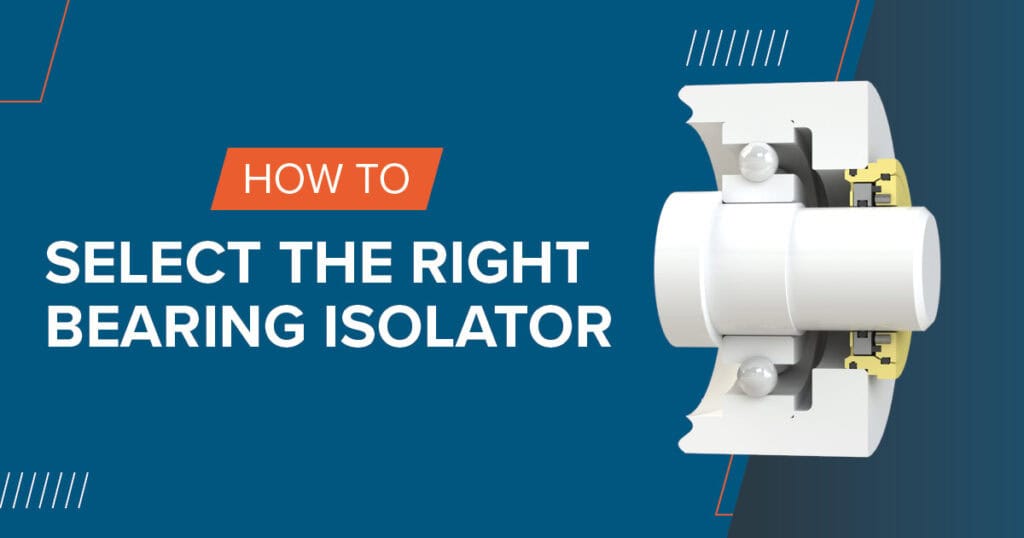Bearing isolators are essential components that protect bearings on rotating equipment from contamination and leakage. Choosing the right bearing isolator is critical for operators aiming to optimize their pump systems and ensure long-term equipment performance. Below is important information you need to know when selecting the best bearing isolator for your specific pump equipment.
How Do Bearing Isolators Work?
Bearing isolators are designed to keep contaminants out of the bearing housing and retain lubricants within. They consist of two main parts: a rotor and a stator. The rotor rotates with the shaft, while the stator remains stationary. These components work together to form a noncontact seal that effectively protects the bearings.
Key Considerations for Selecting Bearing Isolators
Here are key factors to consider when pairing a new bearing isolator with your pumps and other rotating equipment:
- Application Environment
The environment in which the pump operates plays a crucial role in selecting the right bearing isolator. For harsh environments with high levels of dust, dirt, or moisture, you need a robust bearing isolator made of durable materials such as stainless steel or high-performance plastics. For less extreme environments, a more cost-effective material like aluminum may suffice.
- Operating Conditions
Evaluate the operating conditions of the pump, including temperature, pressure, and speed. Bearing isolators must withstand the specific conditions they will be exposed to during operation. High temperatures may require isolators with special seals or materials that can maintain their integrity under thermal stress. Meanwhile, high-speed applications need isolators designed to handle rotational velocities without compromising performance.
- Lubrication Compatibility
Ensure the bearing isolator is compatible with the lubrication used in the pump system. Different lubricants can affect the materials and performance of the isolator. For example, synthetic lubricants may require isolators made from specific materials to prevent degradation and ensure efficient sealing.
- Maintenance and Installation
Opt for bearing isolators that are easy to install and maintain. Simple installation reduces downtime and labor costs. Additionally, consider isolators with designs that allow for easy inspection and maintenance without requiring complete disassembly of the pump system.
- Cost vs. Performance
While cost is always a factor, it should not be the only issue to consider. Investing in high-quality bearing isolators can lead to reduced downtime and maintenance costs for significant long-term savings. Ultimately, proper bearing isolator solutions can extend the lifespan of the pump equipment. Consider the total cost of ownership rather than just the initial purchase price.
Types of Bearing Isolators
Several types of bearing isolators are manufactured with specific sealing solutions. It’s important to select the right design for your equipment and application.
- Labyrinth Seals—Labyrinth seals use a series of interlocking passages to create a complex path for contaminants, making it difficult for them to reach the bearings. These seals are ideal for applications with moderate to high contamination levels.
- Magnetic Seals—Magnetic seals use magnetic forces to create a seal. They are particularly effective in preventing the ingress of fine particles and are suitable for applications requiring a high degree of cleanliness.
- Contact Seals—Contact seals create a physical barrier between the environment and the bearing. They are highly effective at sealing but may generate more friction and wear over time. This makes them best suited for lower-speed applications.
Selecting the best bearing isolator for your pump system is a crucial step toward optimizing performance and ensuring longevity of your rotating equipment. To find the optimum bearing isolator to meet your specific needs, contact DXP Pacific today. Let our team find the ideal technology to optimize your pump system.

